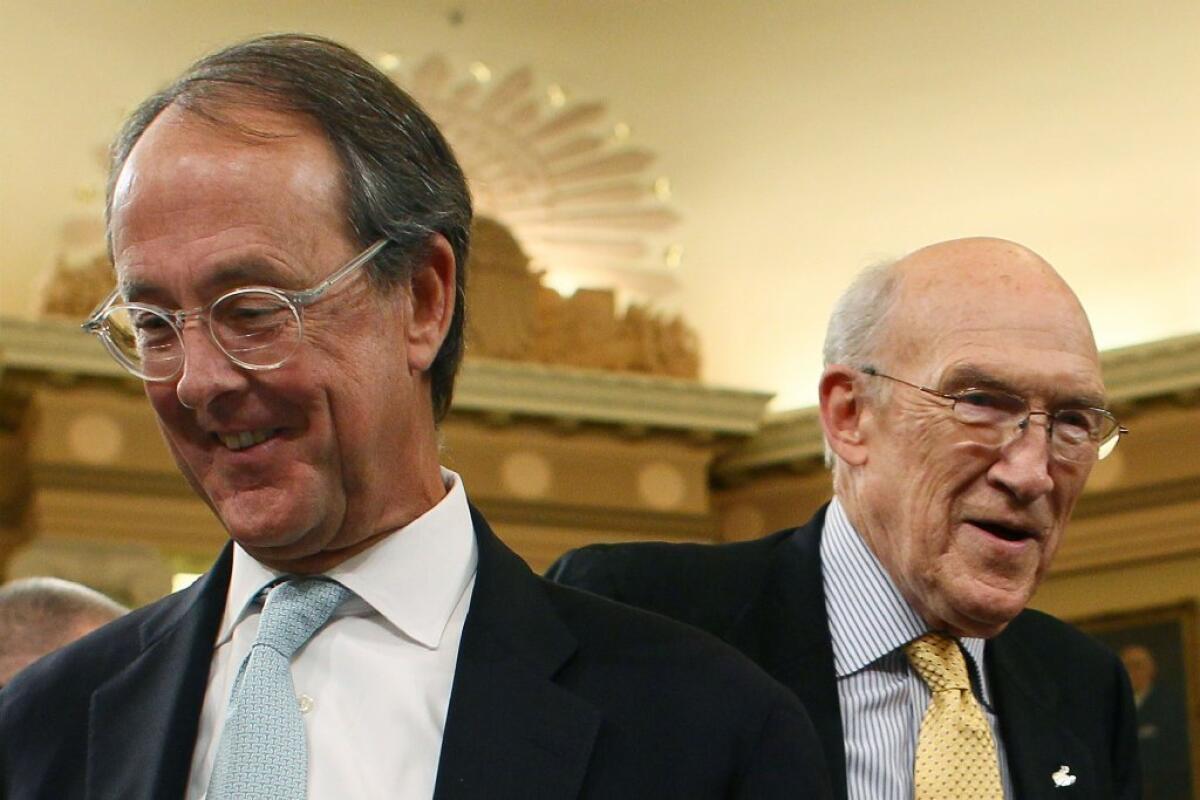Bowles, Simpson tell policymakers to get serious on debt reduction

WASHINGTON -- The bipartisan heads of the federal commission that pushed a sweeping deficit reduction plan in 2011 urged President Obama and Congress to stop playing “small ball” in dealing with the nation’s debt.
Instead, policymakers should compromise to reach a bold agreement to cut spending and raise revenue, said Erskine Bowles and Alan Simpson, who co-chaired the National Commission on Fiscal Responsibility and Reform.
“Our generation created this mess, and it’s our generation’s responsibility to clean it up together,” they wrote in an opinion article in Politico. “We do not have the time or the luxury of leaving this problem for the next generation to solve.”
Just weeks after striking a deal to avoid most of the tax increases set to hit at the start of the year, the White House and congressional Republicans are at a stalemate on large automatic spending cuts looming on March 1.
Quiz: How much do you know about looming federal budget cuts?
Bowles, who served as White House chief of staff for President Clinton, and Simpson, who was a longtime Republican senator, criticized both parties for “continual fiscal brinkmanship” the last two years.
Last-minute deals to avoid crises such as the fiscal cliff have provided “nothing more than usual ‘small ball’ solutions that fail to address our underlying structural problems,” the said.
“All Washington has managed to do since our commission submitted its report is the easy stuff,” Bowles and Simpson said. They called the agreement to avoid the “fiscal cliff” and raise taxes on annual household income of more than $450,000 “a pitiful revenue deal.”
The automatic budget cuts set for March 1, known as sequestration, have helped the government cap discretionary spending “without being specific on what it will actually cut.”
Neither of those deals, they said, have dealt with reforming the tax code, reducing the growth of healthcare costs, or have helped make Social Security more solvent.
“This is the hard stuff that must be done to finally put our nation’s fiscal house in order,” they said.
Democrats and Republicans need to “move as one beyond their comfort zone on health and tax reform” to make progress toward a meaningful deficit-reduction agreement that would include other spending cuts and new revenue from tax reform, Bowles and Simpson said.
ALSO:
Automatic budget cuts are almost certain
Jerry Brown warns of federal budget cuts’ impact on state
Democrats float plan to avoid automatic slash in spending







